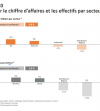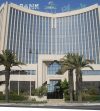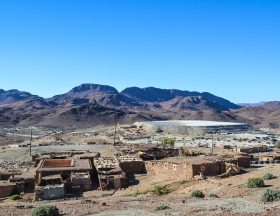Banks in the Middle East do not ensure sufficient levels of investment in the real economy, despite their preponderant weight in the regional financial sectors. Analysis
The emphasis on public investment and state-owned enterprises weakens flows intended for private productive sectors and undermines the issue of diversification of productive structures. All the countries in the region are thus below the world average of private sector financing in relation to GDP (98.6%), with an average of 50% for the countries of the region, and shares of credits which go down to 13% of GDP for Lebanon and Iraq.
Levels of financial inclusion are very unequal and create development disparities.
At the regional level, banking rates are very heterogeneous, ranging from 19% for Iraq to 93% for Israel in 2021. At the national level, inequalities in access to credit are also visible. The banking rate of women is systematically lower than the national average, as observed in the Jordanian case with a gap of 13 percentage points in 2021. Other disparities may exist, for example in Israel where a gap of 23 percentage points percentage exists between the banking rate of Jewish populations and that of Arab populations.
Banks and the State feed each other’s weaknesses, creating significant financial and macroeconomic risks.
The “bank-sovereign” loop is indeed very present in the Middle East, in particular through exposure to sovereign debt by local banks, notably in Lebanon, Egypt and Jordan. Thus, State involvement can weaken governance and the role of banks, while the fragility of banks can become a brake on the growth and functioning of financial markets.
Banks in the Middle East have very heterogeneous performances and exposure to solvency and liquidity risk.
The disparate solvency levels of banks are the result of different governance modes depending on the country. The availability of liquidity in banks is heavily influenced by and the level of deposits and confidence in the banking system, a factor which has notably caused a liquidity crisis in Lebanon since 2020. The absence of an interbank market, particularly in Iraq, is a factor in the weakening of banks which find themselves vulnerable in situations of liquidity shortages.
The level of performance of banks varies greatly depending on the country. Egypt and Israel respectively record a return on equity (RoE) in 2022 of 16.1% and 16.4%, as well as a non-performing loan rate of 3.4% and 0.71%. Syria is also one of the countries with the highest returns on its equity (31.95% in 2021). On the other hand, Iraq and Lebanon recorded the worst banking performances in the region, with a RoE which stood at 4.8% and 0.35% respectively in 2021.
Banks face competition from para-banking systems, in a context of cash economies which compromises their efficiency.
The importance of financial intermediation by banks is called into question by the growing share of the informal economy operating in cash. In this context, exchange offices and hawala compete with traditional banks, particularly in Iraq, Lebanon and Syria.
Source: French Embassy in Lebanon
























Réagissez à cet article